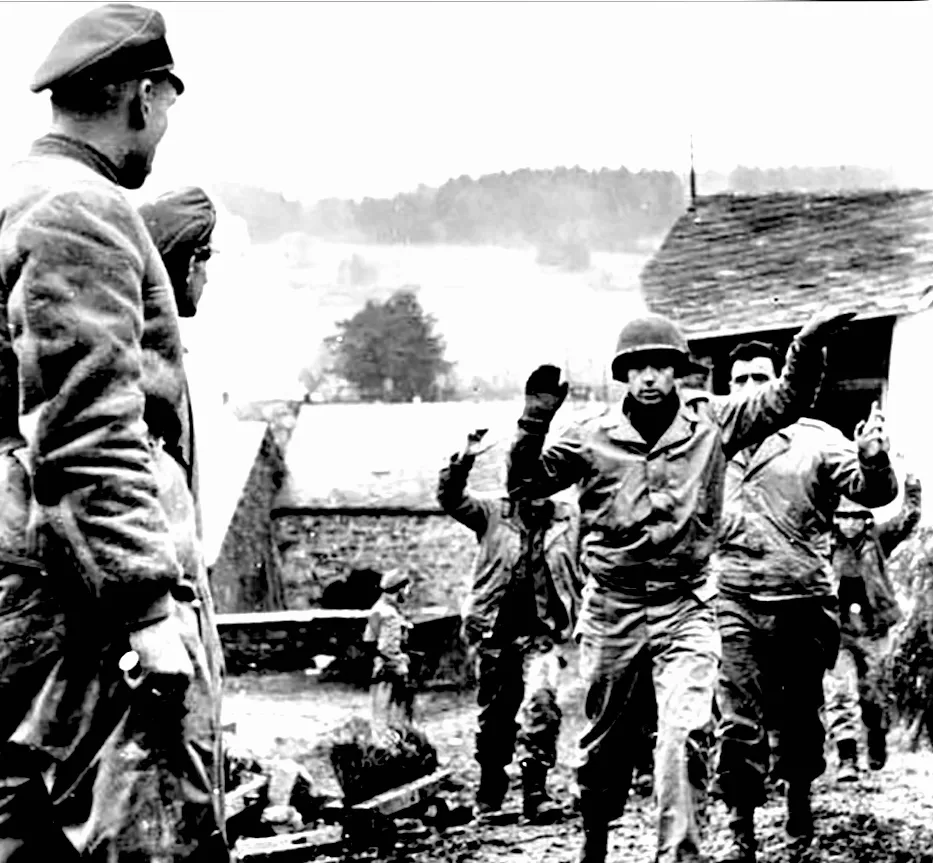A Necessary Reminder
I cannot help but recall the Ardennes Offensive, which began on December 16, 1944, 79 years ago today. It stands as a testament to our people’s military and civilian achievements, of which most today lack any awareness. At that time, the Reich was in its sixth year of war and backed into a corner. The Soviet summer offensive, which had led to the downfall of the Army Group Center in the East, had only come to a halt at the Vistula. From the South and West, the Western Allies were seemingly unstoppable in their advance towards the Reich’s borders. At the same time, the population in the cities was subjected to brutal, militarily pointless bombing terror every day. The fact that German arms production nonetheless reached its peak in the fourth quarter of 1944 is an achievement of the German war economy that seems utterly unbelievable in retrospect.
What should Germany have done? Since the Casablanca Conference in February 1943, the Allies had demanded the unconditional surrender of the Reich. Everyone could imagine what that meant. There was no choice but to continue fighting.
Of course, hindsight is always 20/20, and it is true that the divisions gathered for the Ardennes Offensive in the West were missing in the East. There, they could have only slowed down, but not stopped, the further advance of the Red Army to the West. When Hitler decided in September to launch the offensive in the West, he was hoping not only for military success but primarily for a political victory. The planned “Super Cannae,” which he intended to deliver to the Allies by a bold advance up to Antwerp, was supposed to knock the Western powers out of the race. It was his last card.
Militarily, the operation relied on too many unknowns: on bad weather that was supposed to neutralize the Allies’ air superiority, on American fuel depots that the German tank wedges were supposed to capture first to replenish their gasoline supplies for the further advance, on paratroopers who were supposed to cause confusion behind the Americans and secure important points — and a dozen other assumptions that then shattered in the first days of the offensive. The attack got nowhere beyond initial successes. The forces were not nearly sufficient for the bold, overly ambitious military goal, and the Wehrmacht was no longer that of 1940. By Christmas, the offensive had failed.
Was the sacrifice in vain? That is not for us, the post-born, to judge. What remains is the indelible memory of our people’s unparalleled heroic struggle. No one needs to be ashamed of it. Those who complain today should remember the generation of 1944. They fought.







